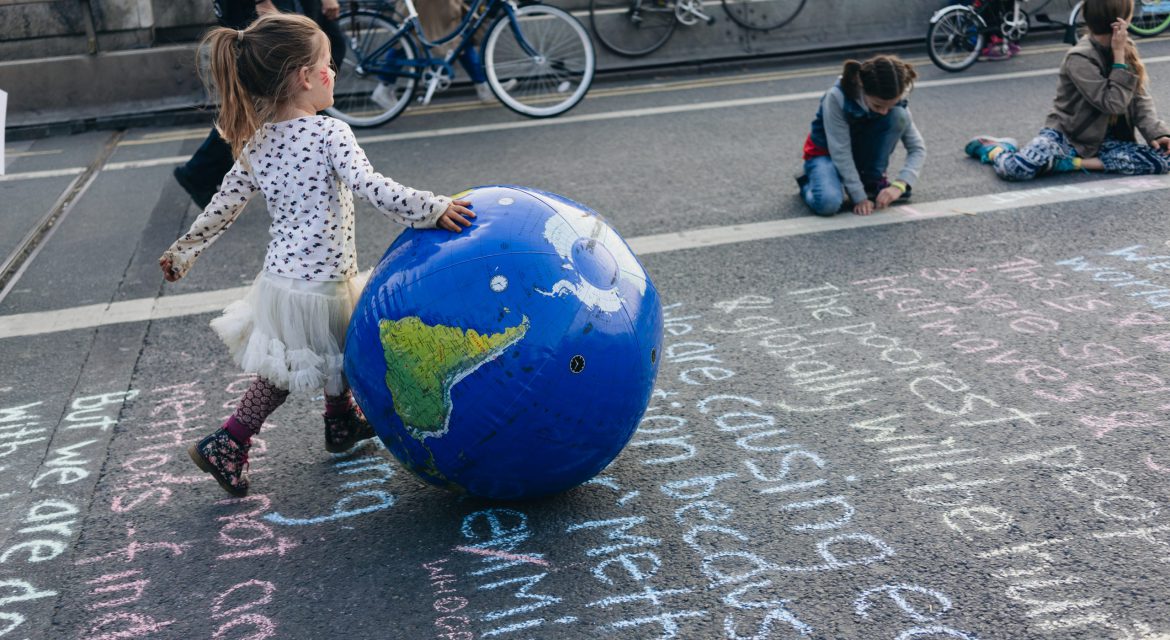How to have a conversation with a climate change sceptic?
QatarDebate Center, a member of Qatar Foundation is sending a delegation to speak at the “Youth4Climate: Driving Ambition” event to be held in Milan, from September 28th to October 2nd, 2021.
Hosted by the Government of Italy as part of PreCOP26, this event is considered “historic” as it will be the first-time young people will bring forward their proposals and engage in discussions with attending government representatives, on the topic of climate change.
QatarDebate will be hosting a presidential style debate, wherein young activists’ debate and discuss the reforms needed to transform societal attitudes towards the environment. Debaters will challenge and participate in discussions on the most effective methods of engaging people, navigating around cultural norms and traditions, fighting fake news, policy reforms, and more.

This article examines how to have a conversation with someone who does not believe in climate change – one of the major environmental issues facing our planet today. We hope it will be useful, when entering into a conversation about this pressing matter, with a skeptic.
There is a huge amount of misinformation regarding climate change. This often results in people being misinformed and believing things that are not necessarily true
Can you have a conversation with a sceptic?
What is denial?
Denying something exists or is happening may result in us clutching our viewpoint even more tightly, and in most extreme cases avoiding the topic altogether. There is a huge amount of misinformation regarding climate change. This often results in people being misinformed and believing things that are not necessarily true, so it’s important to remember this when having conversations with denialists.
Don’t get angry
If you begin a sentence with, “That’s really stupid,” the conversation might as well end there. Above all, as hard as it may be, try to show respect for the other person’s position. The goal is to build trust – not to prove a point. Understand where they are coming from – this will help you better approach the topic in a way that is more easily digestible for them. By creating an atmosphere of acceptance, not blind agreement, both sides enter into an unwritten agreement to be respectful and listen to one another.
Know your goal
What do you want your conversation to achieve? By establishing this goal, you can better engage the other person. This may mean having a “more open dialogue” that allows them to express their opinions and thoughts as well as yours, if that is what it takes for you to be able to discuss matters effectively.

Know your audience
Understanding your audience will help you better understand how to approach the topic and what their biases might be. You can use this knowledge to shape what points you want to focus on when having a conversation with them. An informative and engaging discussion that leads to a mutual understanding of both sides of an argument should be the goal in every situation.
Seek common ground
By showing respect for people’s cultural or political views you may be able to persuade them that curbing climate change isn’t at odds with their identity. This can help you build trust and bridge the gap between your opposing views. Be open, honest, and transparent about your own biases. This will encourage others to do the same which in turn creates a more constructive conversation with less defensiveness from both sides of an argument.
For example, people might respond to the fact that rising temperatures and stronger storms will threaten vulnerable groups around the world.
For those worried about employment, they might be curious to learn how their municipality is a pioneer in green energy research, or their city is organizing the first first carbon-neutral tournament through the use of solar-powered stadiums..

When talking with people who deny climate change exists, it’s important to keep in mind that they may have been exposed to a lot of misinformation and therefore do not believe the science isn’t sound. In most extreme cases, some believe climate change to be a conspiracy or hoax. Given the internet’s capacity to spread information at a speed never seen before, it’s no surprise that anybody could be confused and become doubtful. This is why it is important to ask questions and seek out common ground.
Tell your own stories.
Personal and relatable stories are a powerful way of engaging people and attracting their attention. Do you have a family member or friend, whose livelihood has been directly impacted by the climate? Have you noticed a decrease in the size of forest or disappearing rivers where you used to play when you were a kid?
Large data sets might be convincing to a scientist, but personal experiences are undoubtedly more effective for the rest of us. We’ve all had one of these experiences. Share your own climate-related tale and see if your climate skeptic is willing to consider the changes in weather patterns as evidence.
As you can see, there are many different approaches and tactics for having a conversation about climate change. To be most effective, you must know your goal, your audience, seek out common ground and tell personal stories.



Leave a comment